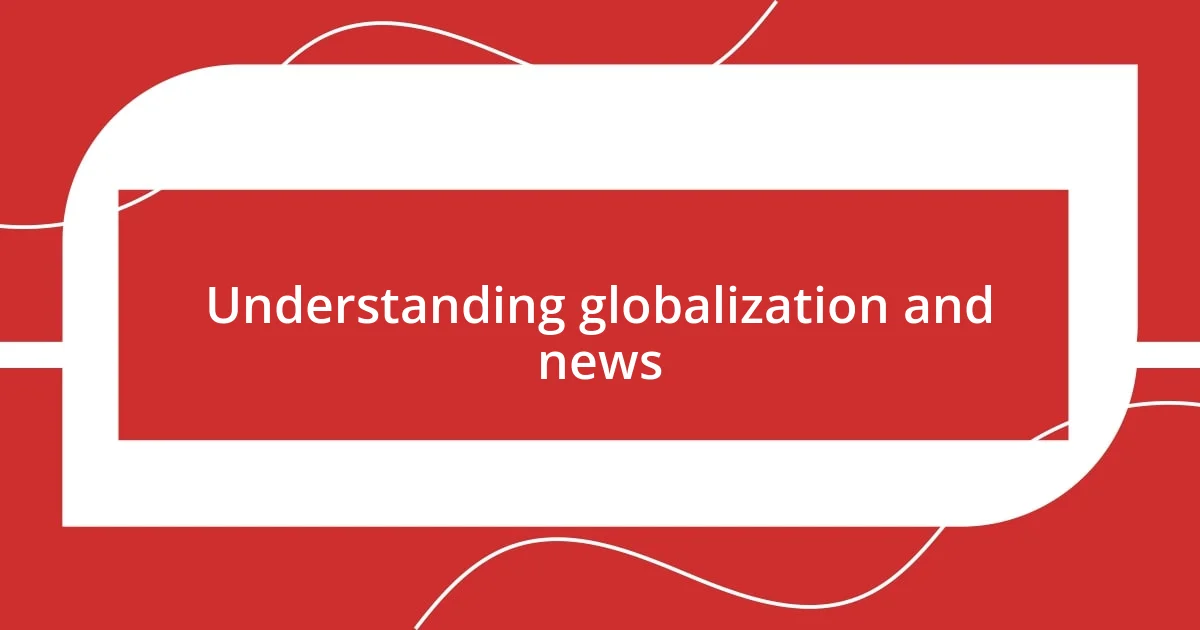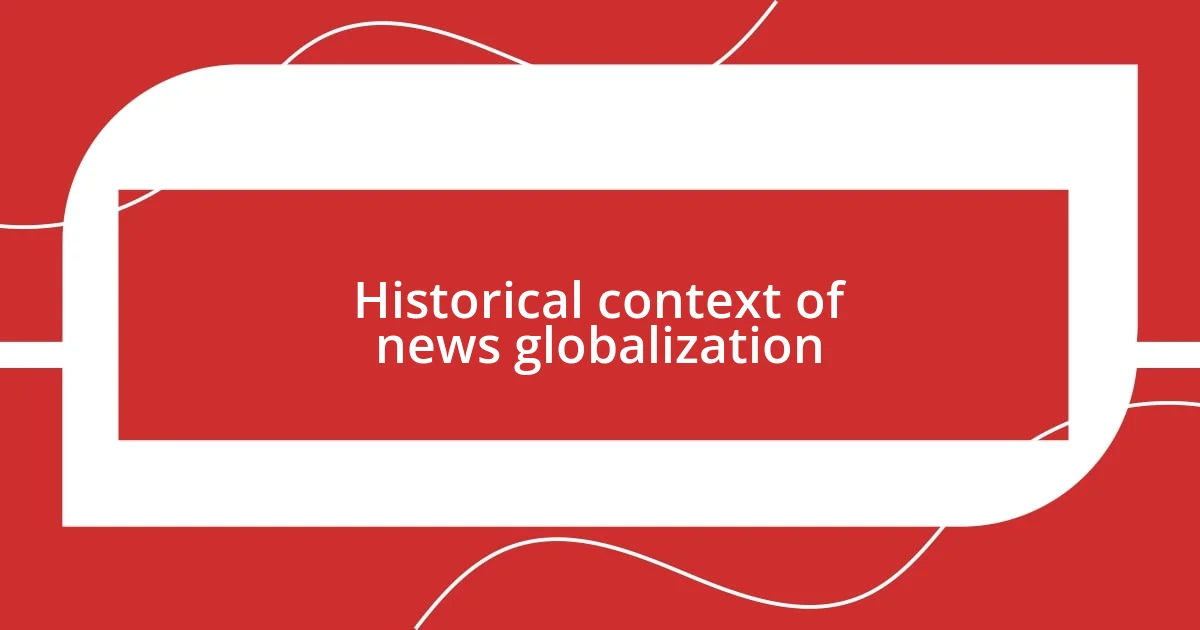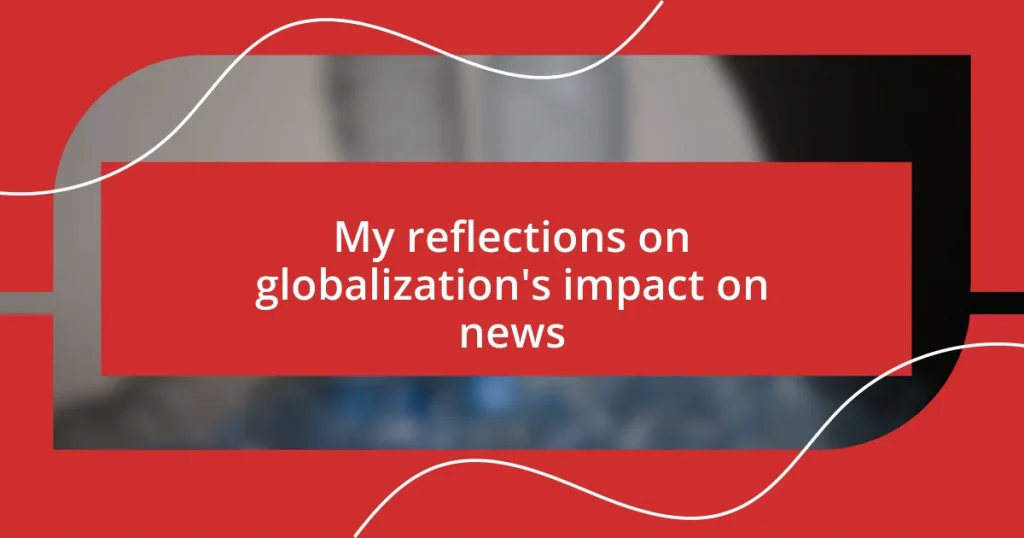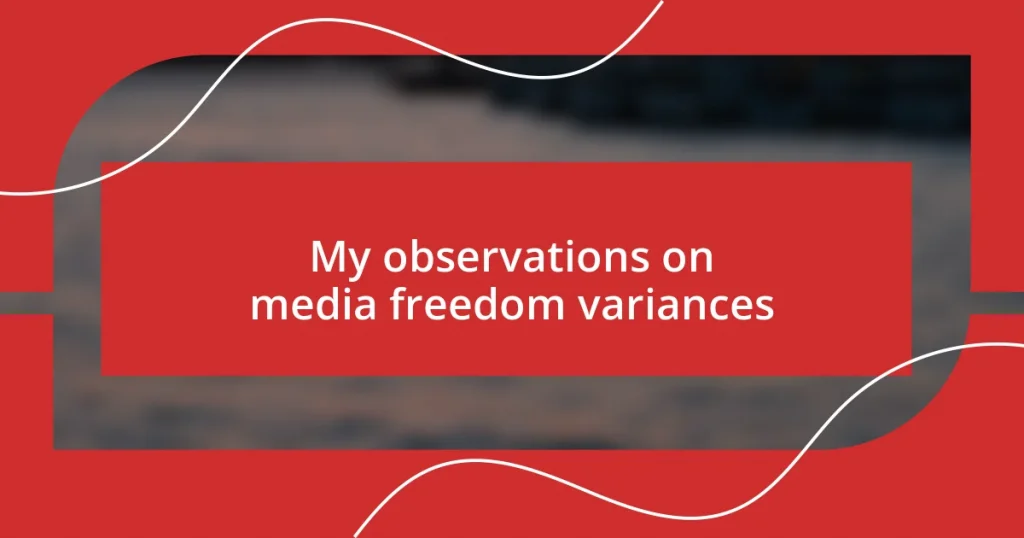Key takeaways:
- Globalization has transformed news consumption, allowing for rapid access to international stories while complicating the understanding of truth through echo chambers and algorithm biases.
- The historical progression of news globalization began with the telegraph in the 19th century, followed by television’s live coverage in the mid-20th century, and culminated in the digital age with the internet providing instant news access.
- Modern news consumption habits emphasize the influence of global trends and emotional resonance, with real-time updates fostering a deeper connection but also raising questions about citizen responsibilities in an interconnected world.

Understanding globalization and news
Globalization has fundamentally reshaped the landscape of news, allowing information to flow across borders at unprecedented speeds. I recall the first time I accessed international news from a small café in my hometown, scrolling through reports from outlets halfway across the globe. It made me ponder—what stories were being overlooked in my community while I was engrossed in distant crises?
As I reflect on how globalization enables diverse perspectives, I realize it also complicates our understanding of truth. The algorithms that curate news feeds can create echo chambers, often reinforcing biases rather than challenging them. Have you ever found yourself surprised by differing viewpoints that emerge from a simple news search? It’s a stark reminder that our news consumption is a reflection of our globalized society—interconnected yet often fragmented.
Moreover, the rise of citizen journalism, fueled by global connectivity, is incredibly empowering. I remember watching live updates from a protest in another country, feeling a surge of solidarity and urgency. This real-time reporting shows us that anyone with a smartphone can now contribute to the news narrative. But this raises important questions—how do we discern credible voices in this chaotic chorus? The answers are vital as we navigate an increasingly complex world of information.

Historical context of news globalization
With the advent of the telegraph in the 19th century, news began its journey toward globalization. I often marvel at how a simple electrical signal could connect people across vast distances, allowing breaking news to travel faster than ever before. This transformation marked the beginning of instant communication, setting the stage for the interwoven news landscape we experience today.
In the mid-20th century, television emerged as a dominant medium, further bridging global gaps. I vividly remember watching international events unfold live on screen; the Vietnam War coverage left an indelible mark on my perception of global issues. It became clear that news was no longer confined to local communities; rather, it was a shared experience that brought the world right into our living rooms.
The digital revolution has taken this a step further, with the internet serving as a major catalyst for news globalization. Reflecting on my own experiences, I recall the days when I relied on newspapers for international news. Now, I find myself clicking on a multitude of websites for diverse perspectives within seconds. It’s a thrilling yet overwhelming experience, as the vastness of available information can sometimes feel like drowning in an ocean of content.
| Era | Key Development |
|---|---|
| 19th Century | Telegraph introduced, paving the way for instant news transmission. |
| Mid-20th Century | Television brought live global coverage into homes, transforming public perception. |
| Digital Age | Internet allows for instantaneous access to news worldwide, creating a complex information landscape. |

Influence on news consumption habits
The shift in our news consumption habits is striking, especially with the overwhelming array of sources available. I often feel like a kid in a candy store when I scroll through my social media feeds, each headline drawing me in from different parts of the world. It’s fascinating yet exhausting—how do I choose which story to prioritize when I have so many competing narratives clamoring for my attention?
As I sit down to catch up on the day’s events, I notice I gravitate towards certain topics influenced by global trends, especially those that resonate emotionally. For instance, stories about climate change or social justice seem to grab my focus more than they once did. It makes me wonder—are my interests truly my own, or are they shaped by the global dialogue that surrounds these pressing issues? In moments of reflection, I realize that our collective consciousness has expanded, compelling us to care about phenomena that might not directly affect our local communities.
Moreover, the convenience of mobile news apps has transformed my relationship with information. Instead of waiting for the evening news, I find myself receiving real-time updates throughout the day, often leading to a deeper sense of connection to global events. I recall feeling a punch in my gut when I received push notifications about natural disasters. In those instances, I’m not just a spectator; I’m part of a global conversation. It begs the question: how does this constant access to news reshape our responsibilities as informed citizens?















